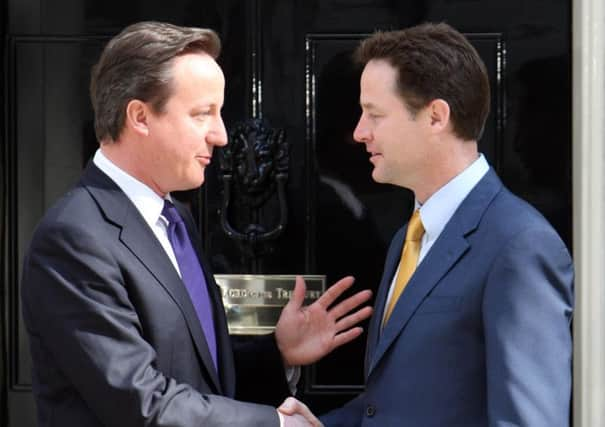Lib Dems hope hard work will help party defy polls


The party went into the polls, which coincided with the General Election, with majorities on the councils in Hull and Sheffield and shared power with the Conservatives in Leeds. Further afield, the party had usurped Labour’s longtime urban domination in Newcastle and Liverpool.
The Lib Dems had broken out of their South-West stronghold and leading party figures regularly pointed to its record running northern cities as they looked to convince voters it had the credibility to hold power in Westminster and Whitehall.
Advertisement
Hide AdAdvertisement
Hide AdIn May 2010, the party made that breakthrough as they reached the coalition deal with the Conservatives. But within 12 months of their leader becoming Deputy Prime Minister, the Lib Dems had lost their grip on the cities they had invested years in winning. Leeds and Liverpool were lost in 2010 and were followed by Newcastle, Sheffield and Hull in 2011.
With polls putting their support at about 10 per cent and some pundits forecasting the party could lose all its MEPs in the European elections also being held on Thursday, this could be another unhappy week for the Lib Dems. But Carl Minns, Hull City Council’s former Lib Dem leader, believes that, locally at least, the party’s fortunes are improving.
“It certainly feels better than 2011, but I don’t suppose it could get any worse. The feeling I get is that the Labour vote is less motivated than it was two years ago. We could do better than the polling suggests. Talking to colleagues around the region, bullish would be the wrong word but they are saying the same things, we can win where we have put in a consistent level of work.”
Mr Minns, now training to be a teacher, said in 2010 the Lib Dems were getting support in areas they were not actively contesting which did not win them seats but boosted their poll numbers. Those votes have ebbed away, hitting poll numbers, but it is the seats where the party is working hard that matter.
Advertisement
Hide AdAdvertisement
Hide Ad“More and more Liberal Democrat councillors are realising the level of work they did up to 2011 isn’t enough to keep your seats. It is going to be tough, but not impossible if you dig in and work hard.”
The theme is taken up by Yorkshire MEP Edward McMillan-Scott, fighting his first European election as a Lib Dem after defecting from the Conservatives in 2010.
“I think it is going to be tight for the Lib Dems but I don’t think people should underestimate the capacity in the party to operate highly effectively. It is well known for its campaigning. Elections are about organisation and commitment. The thing that impresses me as a former Conservative is just how proficient and professional the Lib Dem machinery is.”
Of the major parties, the Lib Dems are the only one to have run a campaign unequivocally pro-Europe with leader Nick Clegg coining the slogan “the party of IN”. Mr McMillan-Scott is convinced it has been the right approach.
Advertisement
Hide AdAdvertisement
Hide AdHe said: “There is no doubt whatsoever that as much as any region this one is benefiting from access to the single European market. The other side of that is inward investment. Siemens would not have committed themselves to Hull (to build a major wind turbine plant) unless they thought we were staying in the EU. They have taken the view that the British population by a majority wants to stay in the EU and I think the Liberal Democrat hope is that people who are pro-Europeans and want to stay in the EU will lend their votes.”